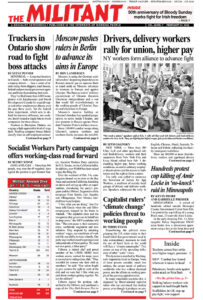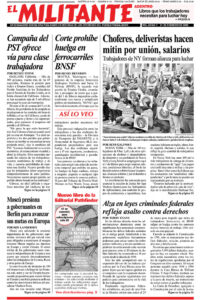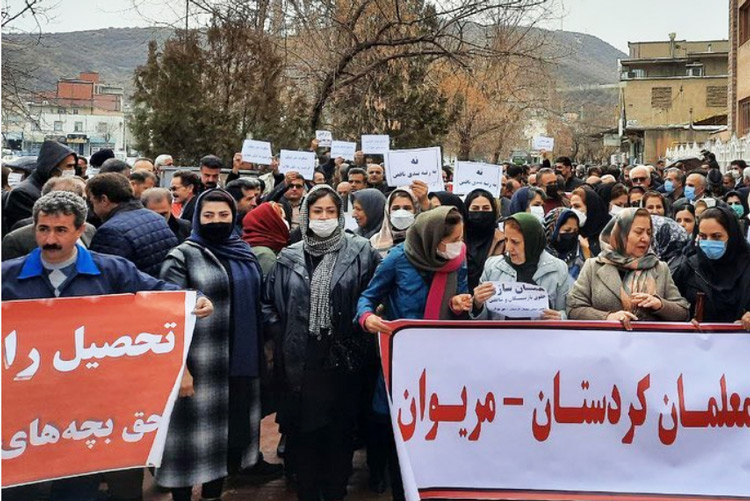Thousands of teachers, many of them women, held protests and strikes across Iran Jan. 31 — including outside the parliament in Tehran — calling for higher pay and pensions and opposing increasing moves to charge for public education. The semiofficial Iranian Labour News Agency (ILNA) carried reports and photos from a half dozen of the actions, the third day of teacher protests in recent weeks.
After the earlier protests, parliament approved a complicated “Teachers Ranking Plan” Dec. 15 that was supposed to raise pay based on “expertise,” “experience,” seniority, the completion of further university study and other criteria. But the protests continued. “I am a teacher. I have come to teach my students that rights have to be fought for” read one protester’s sign.
Among popular chants at the Jan. 31 actions were “Free education for the children of Iran is a right” and “Implement the [pay] plan without any tricks.” Protesters also carried signs demanding “Free the imprisoned teachers,” referring to union leaders and other teachers who have been detained over the last few weeks, including at least four Jan. 31.
While free public education is guaranteed in the Iranian constitution, many schools are trying to get parents to pay tuition because government funding is inadequate.
“The demands for the rights of teachers and educators have not been implemented after 15 years. It’s just promises and promises” from the government, a teacher told the rally in Markazi province, the ILNA reported.
Iran’s workers and farmers are facing the impact of the worldwide capitalist economic crisis, exacerbated by the cost of the regime’s military interventions to extend its counterrevolutionary reach in Syria, Lebanon and elsewhere in the region, as well as by the economic sanctions imposed by Washington and other imperialist powers. Inflation is estimated to be running at 30% a year, and pensions and wages have not kept up.
“We cannot afford our living expenses,” a high school teacher told an ILNA reporter at a protest at the Ministry of Education in Yazdi, just outside Tehran. Even teachers with a doctorate, he said, only make 4.5 million tomans, about $160 a month.
“People are inciting teachers to not go to the classroom,” Minister of Education Yousef Nouri alleged in face of the widespread protests, trying to smear the teachers as agents of mysterious anti-Iran forces.
Undeterred, the Iranian Teachers Trade Association says it is planning further actions if their demands are not met.


